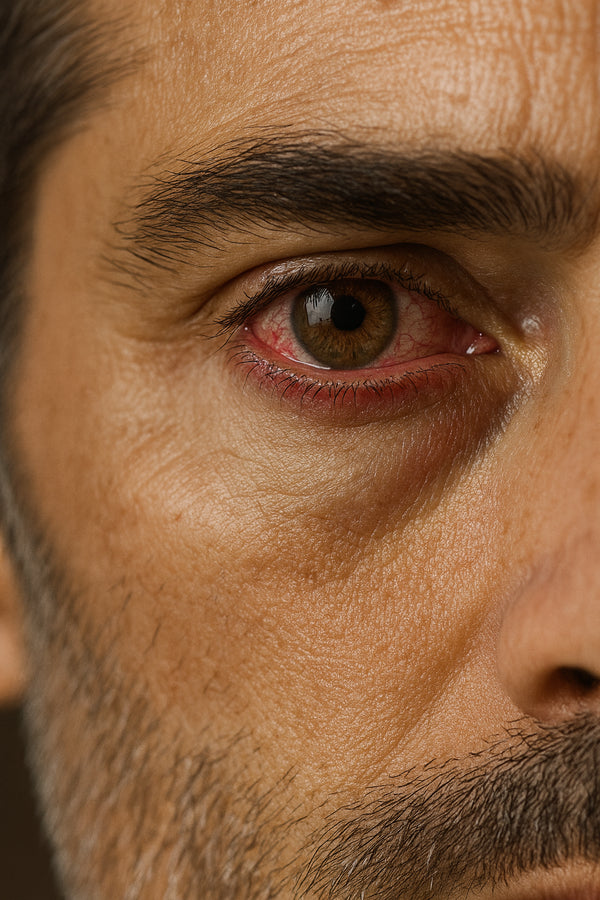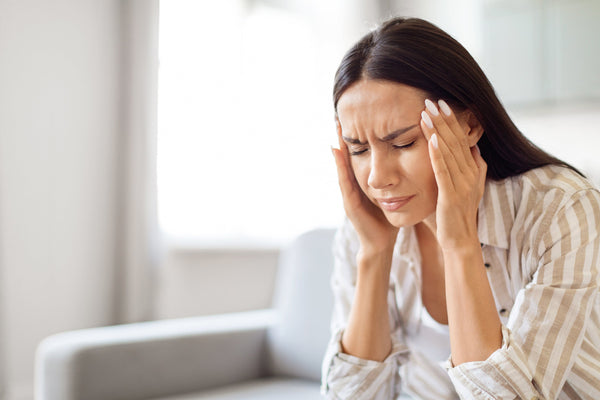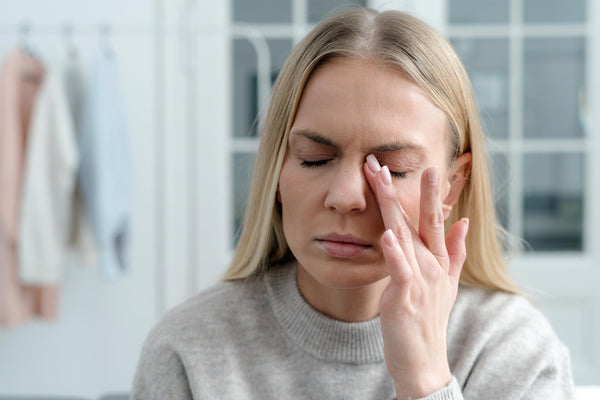
What are puffy eyes?
Puffy eyes refer to a common condition where the area around your eyes appears swollen or puffed up. While it might look similar, puffy eyes are not the same as swollen eyes. The key difference between puffy eyes and swollen eyes lies in the underlying cause and the degree of increased volume in the eyelids.
Puffy eyes are usually temporary and often harmless, resulting from factors like lack of sleep, crying, or fluid retention. Where swollen eyes can be a sign of underlying conditions that may require medical attention. Understanding this distinction can help you determine the appropriate course of action.
Symptoms
The symptoms of puffy eyes can vary depending on what's causing them. Swollen or puffy eyes may also be accompanied by one or more of the following symptoms. The combination of symptoms can help ascertain the likely cause. You might experience one or more of these common signs:

- Swelling around the eyes
- Dark circles under the eyes
- Redness or irritation
- Sensitivity to light
- Watery eyes
- Itching or discomfort
- A feeling of heaviness around the eyes
Causes
Puffy eyes can result from a variety of factors, ranging from lifestyle choices to medical conditions. Understanding these causes can help you pinpoint why you're experiencing puffiness and guide you towards the right solution. While most causes are temporary and easily treatable, some might require medical attention. Common reasons behind puffy eyes:
- Allergies: A reaction to allergens like pollen or dust
- Lack of sleep: Not getting enough rest can lead to puffy eyes
- Crying: Emotional tears can cause temporary puffiness
- High-salt diet: Excess sodium can lead to fluid retention
- Ageing: As we get older, the skin around our eyes becomes less elastic
- Hereditary factors: Some people are genetically predisposed to puffy eyes
- Dehydration: Not drinking enough water can cause puffiness
- Eye infections: For example, conjunctivitis can cause swelling
- Sinus problems: Congestion can affect the area around your eyes
- Hormonal changes: Pregnancy or menstruation can cause temporary puffiness
- Trauma or injury to the eye: Such as getting hit in the eye or a scratched eye
- Poor diet: Lack of nutrients can affect the appearance of your eyes
When should I see my GP?
While puffy eyes are often harmless, it's a good idea to check with your doctor or optometrist if the puffiness lasts for more than a day or two. Some symptoms might indicate more serious complications. Seek medical attention if you experience:
- Sudden and severe swelling
- Pain around the eye
- Changes in vision
- Difficulty closing or opening the eyes
- Persistent redness
- Fever
- A persistent gritty feeling in your eye
- Any discharge from the eye
Treatment
It's important to remember that puffy eyes can be a sign of multiple conditions. There are various ways to address this common problem. The right treatment approach depends on the underlying cause and severity of your symptoms.

If you're experiencing persistent or severe puffiness, it's best to consult with your GP, optometrist or optician. They can rule out any underlying conditions and recommend the most appropriate treatment. However, there are some home remedies that can help reduce puffiness:
- Cold compress: Apply a cool, damp cloth to your eyes
- Stay hydrated: Drink plenty of water throughout the day
- Reduce salt intake: Cut back on salty foods to reduce fluid retention
- Get enough sleep: Aim for 7-9 hours of sleep per night
- Elevate your head: Use an extra pillow while sleeping
- Cucumber slices: Place cool cucumber slices on your eyes for 10-15 minutes
- Tea bags: Cool, used tea bags can help reduce puffiness
- Gentle massage: Lightly massage the area around your eyes to improve circulation
- Use lubricating eye drops: These may help if your eyes are dry. If you suffer from allergies like hay fever, consider using allergy-specific eye drops.
Takeaway
Puffy eyes are a common issue that can be caused by various factors, from lack of sleep to allergies. While often harmless, persistent puffiness or severe symptoms should be checked by a healthcare professional. Simple home remedies can often help reduce puffiness, but it's essential to maintain good eye health through regular check-ups and a healthy lifestyle. Don't hesitate to seek professional advice if you're concerned about any changes in your eye health.







